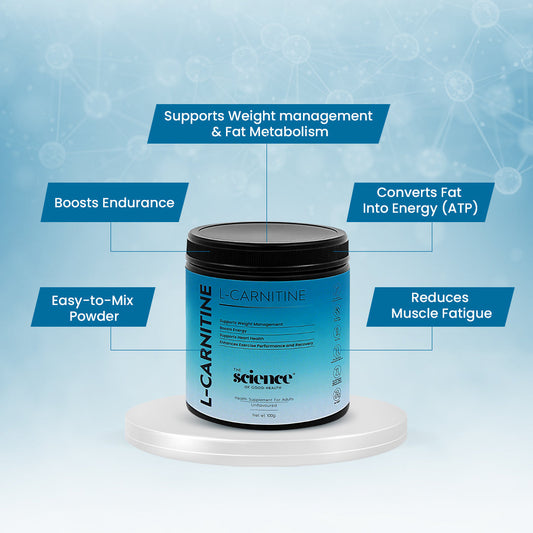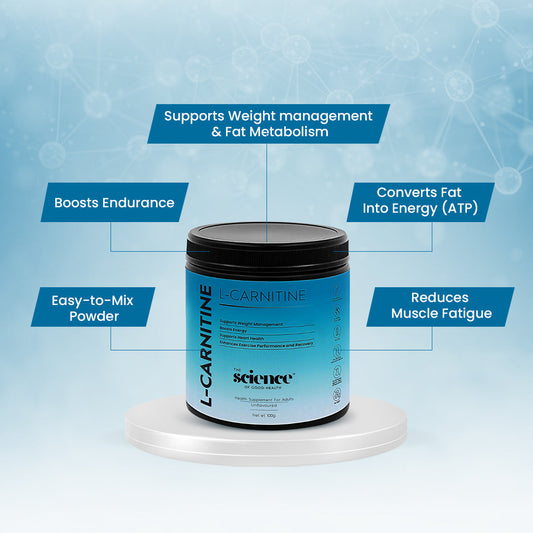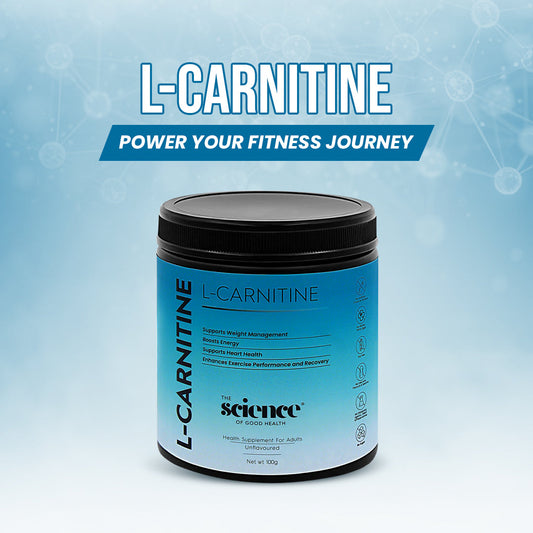If you have ever asked yourself does L-carnitine work, you are not alone. Many people are curious about supplements that promise increased energy, enhanced fat metabolism, and better exercise performance. The truth is that L-carnitine does work under the right circumstances. When used correctly, it can help your body burn fat more efficiently, improve recovery after workouts, and even support cognitive function. In this article, we explore the science, benefits, proper dosage, and real-world results of L-carnitine so you can decide whether this supplement is right for you.
Understanding does L-carnitine work requires looking at its biological role, the scientific evidence supporting its use, and the practical ways to incorporate it into your lifestyle. By the end, you will have a clear answer grounded in research and expert recommendations.
What Is L-Carnitine?
L-carnitine is a naturally occurring compound derived from the amino acids lysine and methionine. It is often classified as a “conditionally essential nutrient,” which means your body can produce it under normal circumstances, but supplementation may be necessary in certain cases.
L-carnitine’s main function is to transport long-chain fatty acids into the mitochondria, which are the energy-producing powerhouses of your cells. Once in the mitochondria, fatty acids are burned to produce ATP, the energy your body uses for physical activity and daily functions. This fundamental role makes L-carnitine essential for anyone who is looking to improve energy metabolism, support exercise recovery, and enhance fat utilization.
Natural Sources of L-Carnitine
L-carnitine is found in both animal and plant-based foods, although the richest sources are typically animal products. Key sources include:
-
Red meat such as beef, lamb, and pork
-
Poultry including chicken and turkey
-
Fish like cod, salmon, and tuna
-
Dairy products such as milk, cheese, and yogurt
-
Plant-based sources including avocados, soybeans, and tempeh
Because plant sources contain much lower amounts of L-carnitine, vegetarians and vegans may struggle to obtain sufficient levels through diet alone. This is where supplementation becomes particularly valuable.
Supplement Forms
L-carnitine is available in several forms, each with slightly different benefits:
-
L-carnitine L-tartrate (LCLT) commonly used in sports supplements to support exercise performance and recovery
-
Acetyl-L-carnitine (ALCAR) which crosses the blood-brain barrier and supports cognitive function and mental energy
-
Propionyl-L-carnitine often used to support cardiovascular health and improve blood flow
The type of L-carnitine you choose can influence your results, which is an important factor when considering does L-carnitine work for your goals.
How Does L-Carnitine Work in the Body?
To understand does L-carnitine work, it is crucial to know how it functions at a cellular level. L-carnitine primarily assists in fatty acid transport into the mitochondria. This allows fatty acids to be oxidized and converted into ATP, providing energy for your muscles and organs.
Key Functions of L-Carnitine
-
Enhances fat oxidation, helping the body utilize stored fat for energy, especially during exercise
-
Supports cellular energy production, which can reduce feelings of fatigue and increase endurance
-
Helps with muscle recovery by reducing the accumulation of metabolic by-products such as lactic acid, which contributes to soreness
Scientific Evidence
Research supports the effectiveness of L-carnitine in several areas. A 2020 review by the Journal of the International Society of Sports Nutrition (JISSN) summarized over 70 studies and found that L-carnitine supplementation:
-
Improves muscle oxygenation during exercise
-
Reduces exercise-induced muscle damage
-
Enhances recovery rates after intense workouts
-
Provides mixed results for direct weight loss, although it consistently supports fat metabolism
These findings help answer the question does L-carnitine work, especially when your goal is improving performance and recovery rather than relying on it as a standalone fat-loss supplement.
Proven Benefits of L-Carnitine
Supports Fat Metabolism and Weight Management
While L-carnitine alone does not cause dramatic weight loss, it does enhance the body’s ability to burn fat, particularly when combined with exercise. Healthline and MyProtein both highlight that consistent supplementation can improve fat oxidation, making your workouts more effective in terms of energy expenditure.
Enhances Exercise Performance
The JISSN review indicates that L-carnitine can improve endurance, strength output, and reduce markers of muscle damage. Supplementing with L-carnitine may result in faster recovery, allowing you to train more consistently and intensely. MyProtein further emphasizes that L-carnitine reduces delayed onset muscle soreness, which helps athletes and active individuals maintain performance over time.
Boosts Energy and Cognitive Function
Acetyl-L-carnitine (ALCAR) supports energy metabolism in the brain, potentially improving focus, alertness, and cognitive performance. Healthline notes that older adults and physically active individuals may particularly benefit from ALCAR in terms of reduced mental fatigue and enhanced clarity.
Scientific Evidence: What Research Says
Numerous studies support the benefits of L-carnitine, although the results may vary depending on factors such as baseline nutrient levels, diet, and exercise routines. Key findings include:
-
Effective in enhancing fat metabolism, particularly during exercise
-
Supports exercise recovery by reducing muscle soreness and damage
-
Mixed evidence for direct weight loss, highlighting the importance of combining supplementation with diet and training
-
Acetyl-L-carnitine shows cognitive benefits, supporting mental energy and focus
Overall, the science suggests that does L-carnitine work is best answered with: yes, but its effectiveness depends on the context and proper use.
How to Take L-Carnitine Effectively
Recommended Dosage
-
Acetyl-L-carnitine (ALCAR) 600–2,500 mg per day
-
L-carnitine L-tartrate (LCLT) 1,000–4,000 mg per day
-
Propionyl-L-carnitine 1,000–4,000 mg per day
Best Time to Take
-
Pre-workout to increase energy levels and promote fat oxidation
-
Post-workout to support recovery and reduce muscle soreness
Precautions
-
Consult a healthcare professional before starting supplementation
- Generally safe, but very high doses may cause mild digestive discomfort or nausea
Natural Sources of L-Carnitine
Even if you choose to supplement, incorporating natural sources can help maintain optimal levels:
-
Red meat such as beef and lamb
-
Poultry including chicken and turkey
-
Fish such as cod, salmon, and tuna
-
Dairy products like milk, yogurt, and cheese
-
Plant-based sources including avocado, soybeans, and tempeh
Consuming these foods regularly may reduce the need for higher doses of supplementation, although supplements are especially helpful for athletes and individuals with higher energy demands.
Does L-Carnitine Really Work? The Verdict
So, does L-carnitine work? The answer is yes, but with important caveats:
-
It is effective in enhancing fat metabolism and energy production
-
Supports exercise recovery and reduces muscle soreness
-
Mixed results for direct weight loss, so it is not a magic solution
-
Works best when paired with consistent exercise, a healthy diet, and proper supplementation
In short, does L-carnitine work? Yes, it is a science-backed performance enhancer with specific use cases, particularly for those seeking better energy, endurance, and fat utilization.
Recommended Product: L-Carnitine by The Science of Good Health
Product Highlights
-
1 gram of pure L-carnitine per serving
-
No fillers or additives
-
Supports fat metabolism and energy production
-
Ideal for athletes and fitness enthusiasts
- 100 servings per container
Ready to experience the benefits of scientifically backed L-carnitine? Explore The Science of Good Health L-Carnitine for optimized performance, energy, and recovery.

Key Takeaways
-
L-carnitine is scientifically supported for fat metabolism and exercise recovery
-
Works best when combined with regular workouts and a balanced diet
-
High-quality, pure L-carnitine supplements provide the maximum benefit
- Understanding does L-carnitine work requires realistic expectations and consistent use
Read our Latest Blogs
L Carnitine Benefits | How Much L Carnitine Per Day | L Carnitine Dosage | L Carnitine Fat Burner | L Carnitine Natural Sources | L Carnitine Pre Workout | Does L Carnitine Burn Fat | How Much L Carnitine Should I Take | L Carnitine Liquid Benefits
Frequently Asked Questions
Q1. Does L-carnitine work for weight loss?
L-carnitine can help increase fat metabolism but will not produce significant weight loss on its own. Results are best when combined with exercise and proper diet.
Q2. What is the best type of L-carnitine?
L-carnitine L-tartrate is ideal for performance, acetyl-L-carnitine supports cognitive function, and propionyl-L-carnitine helps with circulatory health.
Q3. When should I take L-carnitine for best results?
Pre-workout for energy and fat oxidation, post-workout for recovery and muscle repair.
Q4. Can vegetarians benefit from L-carnitine?
Yes, supplementation is often necessary since plant-based sources contain low amounts of L-carnitine.
Q5. Are there side effects of L-carnitine?
It is generally safe. High doses may cause mild nausea or digestive issues in some individuals.
Q6. How long does it take to notice effects?
Energy and recovery benefits may appear within 2 to 4 weeks. Fat metabolism improvements are gradual and require consistent use.
Q7. Does L-carnitine support brain function?
Acetyl-L-carnitine (ALCAR) enhances brain energy metabolism, improving focus, clarity, and cognitive performance.
Q8. Can L-carnitine be combined with other supplements?
Yes, it pairs well with protein, creatine, or pre-workouts, but check for potential interactions.













